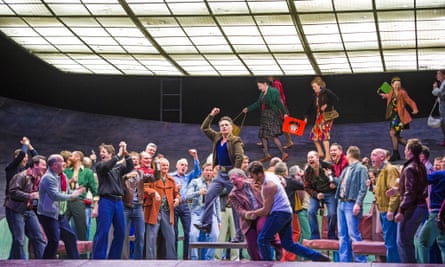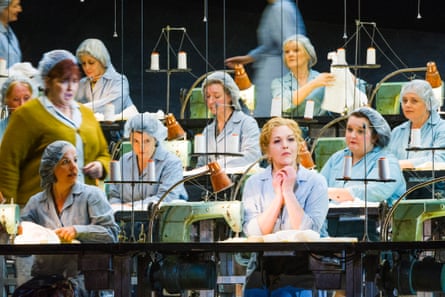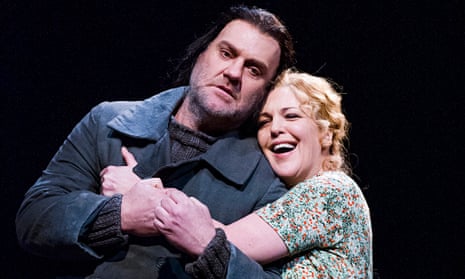Perhaps the orchestra should have been offered sou’westers, not just the chorus: earlier this week the dress rehearsal for Tim Albery’s production of The Flying Dutchman had to be stopped when water from the stage dripped into the pit. But on the first night, nothing got in the way of the lashing storm conjured by Wagner’s music, not even an interval. The opera is played straight through, and under conductor Andris Nelsons the two-and-a-quarter hours fly by. Nelsons drew suppleness, definition and Mediterranean warmth from his players: this was a young composer still in thrall to his fashionable Italian colleagues.

In its second revival, now directed by Daniel Dooner, Albery’s staging evokes 1980s Eastern bloc grimness. Michael Levine’s set is a vast, wide-open space in which the characters still somehow seem trapped: on its curved slope the men toil away on what might be a container ship, and the women work sewing machines in a sweatshop. Underneath the overalls and oilskins is a sea of polyester outfits that brighten up the welcome-home party – at least until the Dutchman’s ghost crew turn up, a moment Albery handles chillingly.
You can see why Senta, Daland’s daughter, wants out; any sane person would, though in Albery’s conception Senta’s obsession with her favourite ghost story goes beyond morbid fascination into mental disintegration. The ending, in which Senta doesn’t die but is left shaking, clutching her model ship, is still an anticlimax: both the music and the set cry out for her to take a running jump.

Bryn Terfel returns to the title role, and again brings to it a compelling intensity. If he perhaps does not quite dominate the stage as before, this is because Adrianne Pieczonka’s Senta is such a tour de force: the Canadian soprano sounds gorgeously vibrant while still capturing the character’s vulnerability. Michael König is a wooden Erik, but Peter Rose is a lively presence as salty sea-dog Daland, and the versatile Ed Lyon, on a night off from candlelit Cavalli at the Globe, steals his scenes as the Steersman.

Comments (…)
Sign in or create your Guardian account to join the discussion